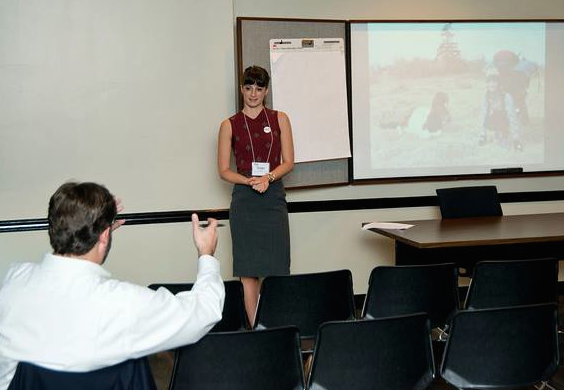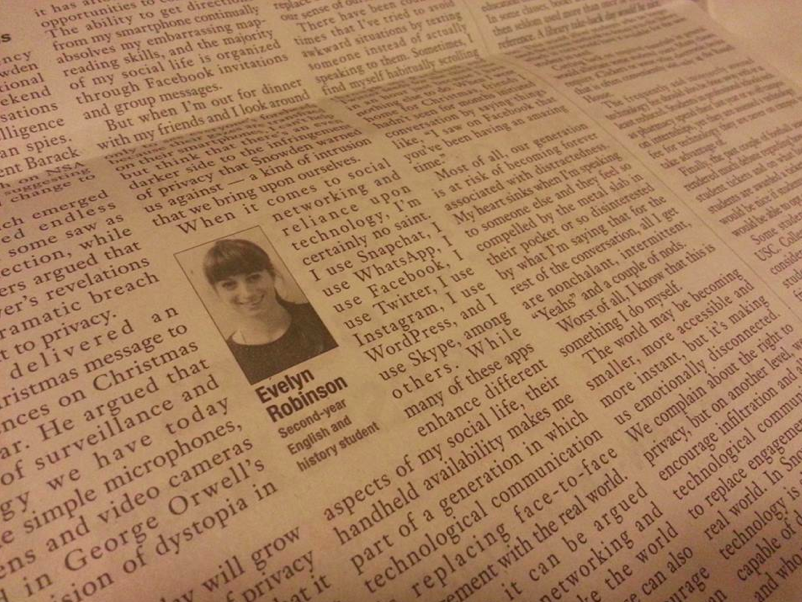Thinking about a career in journalism? You might already have what it takes
When you apply for a position in journalism, there are a number of career-specific requirements that employers will be looking for. A diverse portfolio of articles, experience working in a newsroom and shorthand proficiency are some of the essentials that make for a killer CV.
But if you’re moving into journalism from another career path, don’t despair. Here are five transferable skills you might already have that could help boost your CV to the top of the pile:
Communication skills
This truly is the pièce de résistance. The clincher. The bottom line that any interviewer will want to know: how well can you communicate what you want to say?
The first requirement under this umbrella term is verbal and conversational skills. 
When you find a story that you desperately want to get published, you’ll need to be able to articulate your ideas to your editor and explain them coherently. Then, when you’re working on that story, conducting interviews and making contacts, you’re going to have to be clear, concise- and preferably, slightly charming- in order to get the information you need as quickly as possible and leave a lasting impression with those you interact with.
Remember- it is always better to ring people for information or interviews- don’t hide behind emails as your main communication channel.
It also helps if you can communicate a degree of emotional intelligence. You’re bound to be working on stories that surround sensitive topics, and it helps if you convey sensitivity and understanding when interviewing people and writing your final piece.
That brings me to the second requirement, which is writing skills. Writing is at the core of journalism, whether you’re looking at a role in digital or print, and there’s no way around the old-school necessity of high-quality fluency, grammar and punctuation.
Touch-typing
As a third of UK bosses say they won’t hire someone unless they can touch type, and 42% of people type with just one or two fingers, being able to touch-type is an invaluable skill you’ll want to flaunt on your application.
Journalists are often typing, whether it’s researching stories, typing up interviews or frantically bashing the keys on deadline day, so speeding up your typing time will make you a more efficient candidate.
If you’re still prodding the keyboard with your index fingers, check out Microsoft’s latest #TypingMatters campaign that is offering free touch-typing software downloads, so that you can become more employable from the comfort of your own home.
Data Analysis
Did you notice how knowledgeable I sounded with those typing statistics? Quoting clear and accurate data in news reports is a great way to use solid evidence to support any claim.
As a journalist you’ll receive endless amounts of press releases containing various facts and figures, and it helps if you know how best to use them in order to validate what you’re trying to say.
Multi-media proficiency
In the digital age, not only is it essential to master emails, images, Word, Power-point, Excel and all the other traditional tech programs, but now you’re going to have to show an aptitude for videos, gifs, sound clips, listicles, clickbait, Youtube, Instagram, Pinterest, Twitter and so on. 
But employers don’t just want to see a list of all the programs and media outlets you can use. They want you to show that you know when it’s best to use different forms of media for each given situation, and to be able to explain how a certain type of media will best enhance your particular story.
Research skills
Often, what makes a news story so interesting to read is the fact that it’s an exclusive. An undiscovered treasure that you got to before anyone else. In order to find a truly unique story you’ll need top-notch research skills to unearth information sources and the persistence to keep pursuing your story, even when key contacts fall silent.
If you’re having a slow news day and want to impress your editor with a story of your own, try using www.topsy.com to search and analyse the social web, or to find out what’s trending near you.




